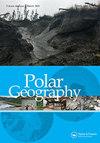北极近海油气田开发人员配备
IF 1.6
Q3 GEOGRAPHY, PHYSICAL
引用次数: 1
摘要
海上油气资源的开发不仅需要先进的设备和技术,还需要高素质的专家,建立教育和研究中心。为了保护俄罗斯北极地区脆弱的自然和民族遗产,以及确定参与项目的人员的最佳数量,找到一个合理的海上生产和使用自然资源的战略,与社会经济目标相协调,是极其重要的。在开发近海碳氢化合物油田方面进行战略规划的最重要工具将是拟议的平衡现有人力潜力和对这种潜力的需要的模式,反映地质勘探、石油和天然气原料生产和运输阶段对人力资源的具体要求和能力。作者对北极油气资源开发项目人员编制分析的研究结果,以及本文所描述的用于预测和规划北极地区一定资格工作人员数量的工具,可用于对北极现有和未来项目提供需求的综合分析。本文章由计算机程序翻译,如有差异,请以英文原文为准。
Staffing for the development of the Arctic offshore hydrocarbon fields
ABSTRACT The development of offshore deposits of hydrocarbon resources requires the involvement of not only advanced equipment and technologies, but also highly qualified specialists, the creation of educational and research centers. It is extremely important to find a rational strategy for offshore production and use of natural resources, harmonized with socio-economic objectives in order to preserve the vulnerable nature and ethnic heritage of the Russian Arctic, as well as to determine the optimal number of personnel involved in projects. The most important tool for strategic planning in the development of offshore hydrocarbon fields will be the proposed model of the balance between the existing human potential and the need for it, reflecting the specifics of the requirements and competencies for human resources at the stages of geological exploration, production and transportation of oil and gas raw materials. The results of the authors' research on the analysis of the staffing of projects for the hydrocarbon resources development in the Arctic and the tools for forecasting and planning the number of personnel of a certain qualification for work in the Arctic zone, described in this paper, can be used in a comprehensive analysis of the needs for the provision of existing and prospective projects in the Arctic.
求助全文
通过发布文献求助,成功后即可免费获取论文全文。
去求助
来源期刊

Polar Geography
GEOGRAPHY, PHYSICAL-
CiteScore
5.30
自引率
0.00%
发文量
13
期刊介绍:
Polar Geographyis a quarterly publication that offers a venue for scholarly research on the physical and human aspects of the Polar Regions. The journal seeks to address the component interplay of the natural systems, the complex historical, political, economic, cultural, diplomatic, and security issues, and the interchange amongst them. As such, the journal welcomes comparative approaches, critical scholarship, and alternative and disparate perspectives from around the globe. The journal offers scientists a venue for publishing longer papers such as might result from distillation of a thesis, or review papers that place in global context results from coordinated national and international efforts currently underway in both Polar Regions.
 求助内容:
求助内容: 应助结果提醒方式:
应助结果提醒方式:


